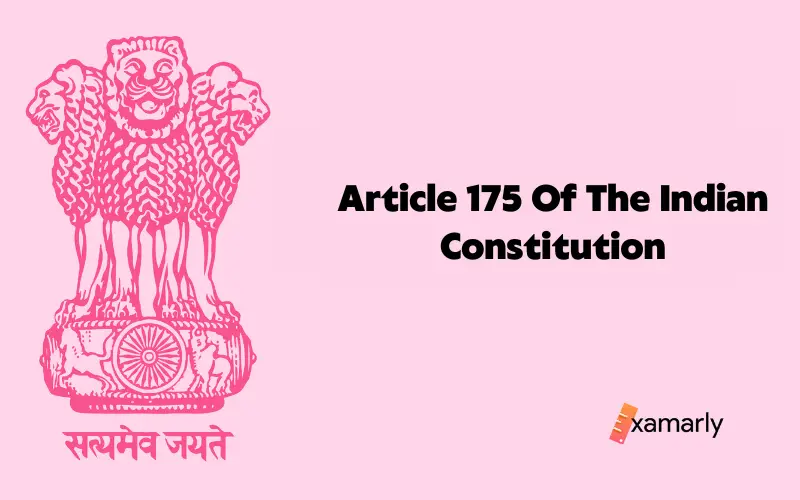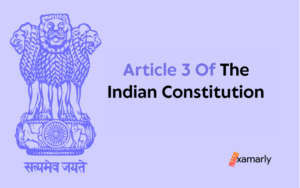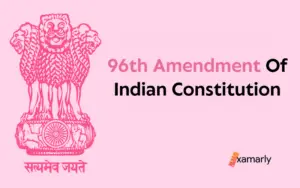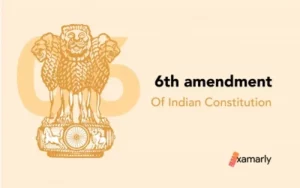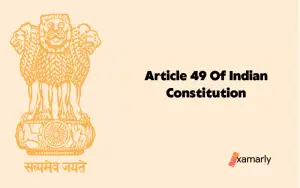Article 175 of the Indian Constitution talks about the Governor’s role in addressing the either House or both the Houses of the State Legislature together.
We will dig deep into Article 175 of the Indian Constitution and grasp all the concepts presented in it.
Article 175 Of The Indian Constitution – In Detail
We will understand Article 175 of the Indian Constitution in detail by analysing each and every clause present in it in detail.
Clause 1 – As it is & Explained
175. Right of Governor to address and send messages to the House or Houses
(1) The Governor may address the Legislative Assembly or, in the case of a State having a Legislative Council, either House of the Legislature of the State, or both Houses assembled together, and may for that purpose require the attendance of members
The first clause of Article 175 of the Indian Constitution says that the Governor has the power and authority to address the Legislative Assembly or Legislative Council in a case where a State has only Legislative Council.
He can also address both the Houses assembled together in a scenario where it is required can also ensure the attendance of the members to fulfil the purpose.
Clause 2 – As it is & Explained
(2) The Governor may sent messages to the House or Houses of the Legislature of the State, whether with respect to a Bill then pending in the Legislature or otherwise, and a House to which any message is so sent shall with all convenient dispatch consider any matter required by the message to be taken into consideration
The second clause of Article 175 of the Indian Constitution says that the Governor has the authority to send messages to the House or Houses of the State Legislature, whether it’s about a bill that’s currently in the legislature or something else.
If a message is sent to a house, that house must quickly look into any issues that the message says should be looked at.
Related – Article 172 Of The Indian Constitution
Some Quick Information
| Council | Seat(s) | House strength | Years active | Abolished by |
|---|---|---|---|---|
| Assam Legislative Council | Shillong | 42 | 1950–1969 | Assam Legislative Council (Abolition) Act, 1969 |
| Bombay Legislative Council | Bombay | 78 | 1950–1960 | Bombay State Reorganisation Act, 1960 |
| Jammu and Kashmir Legislative Council | Srinagar (summer) Jammu (winter) | 36 | 1957–2019 | Jammu and Kashmir Reorganisation Act, 2019 |
| Madhya Pradesh Legislative Council | Bhopal | 77 | 1956–1969 | Madhya Pradesh Legislative Council (Abolition) Act, 1969 |
| Punjab Legislative Council | Chandigarh | 39 | 1956–1969 | Punjab Legislative Council (Abolition) Act, 1969 |
| Tamil Nadu Legislative Council | Chennai | 78 | 1956–1986 | Tamil Nadu Legislative Council (Abolition) Act, 1986 |
| Uttarakhand Legislative Council | Dehradun | 8 | 2000–2002 | Uttar Pradesh Reorganisation Act, 2000 |
| West Bengal Legislative Council | Kolkata | 98 | 1952–1969 | West Bengal Legislative Council (Abolition) Act, 1969 |
FAQs
Who can abolish the state legislative assembly?
According to Article 169 of the Constitution of India, the Parliament of India can create or abolish the State Legislative Council of a state if that state’s legislature passes a resolution for that with a special majority. As of December 2020, 6 out of the 28 states have a State Legislative Council.
How many states will have a Legislative Council in India in 2022?
Article 169 of the Constitution of India says where it came from and why it was made. Six of the 28 states (as of the year 2022) are governed by a State Legislative Council. These are Andhra Pradesh, Karnataka, Telangana, Maharashtra, Bihar, and Uttar Pradesh.
What is the upper house of the state legislature?
The Vidhan Parishad, which is also called the Legislative Council, is a permanent body that, according to the Constitution of India, can be made up of new people or gotten rid of. To phrase it another way, the Legislative Council serves as the state’s upper chamber of the legislature. Article 169 of the Constitution of India explains how it was established and what its functions are.
What is another name for Legislative Assembly?
The term “Vidhan Sabha” refers to the Legislative Assembly, which is the lower house of the state legislature. “Vidhan Parishad,” on the other hand, refers to the Legislative Council, which is the “upper house” of the State Legislature.


